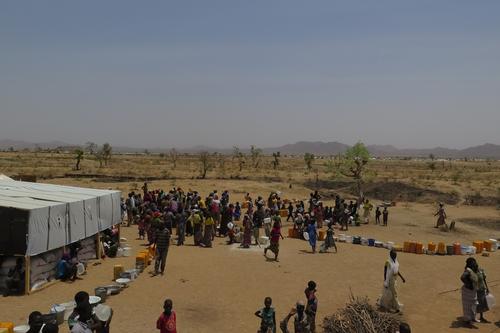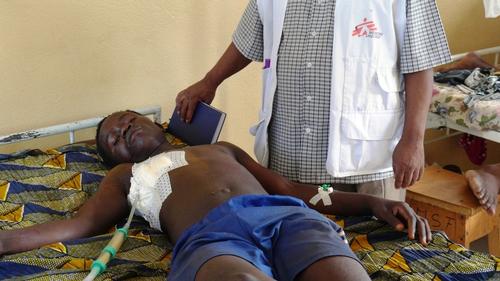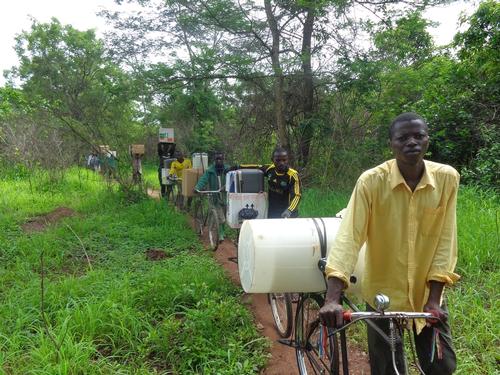The e-letter, "Challenges in Responding to Massive Displacements in Resource-poor Settings: The Case of Central African Republic Refugees in Eastern Cameroon", is available to read in full in African Affairs.
MSF's Research Unit on Humanitarian Stakes and Practices (UREPH) is pleased to announce the publication of the e-letter "Challenges in Responding to Massive Displacements in Resource-poor Settings: The Case of Central African Republic Refugees in Eastern Cameroon" by Caroline Abu Sa'Da and Christine Jamet, written in response to the briefing by Welz "Crisis in the Central African Republic and the international response", published in African Affairs (2014, Vol. 113, No. 453, pp. 601-610).
The violence in the Central African Republic (CAR) since December 2013 has resulted in massive population displacement into neighbouring countries. Cameroon is the most affected country since it received the largest number of refugees from CAR. In September 2014, approximately 100,000 refugees were present in the eastern part of Cameroon. MSF was already present in Cameroon for several years when the first refugees arrived in January 2014. An emergency operation was set up to address the most urgent medical and nutritional needs of the people. Several ethical challenges can be outlined. They are not new to humanitarian aid workers but remain unsolved and continue to represent a source of psychological distress for the actors involved.
Several challenges can be outlined:
- Resource scarcity compared to the magnitude of needs and the capacity of local health services
- Being prevented from providing better relief and helplessly witnessing the deterioration of refugees' health
- Having to discharge children prematurely, due to the high mobility of their families
- Having to comply with (obsolete?) Ministry of Health protocols, where better strategies could be applied.






